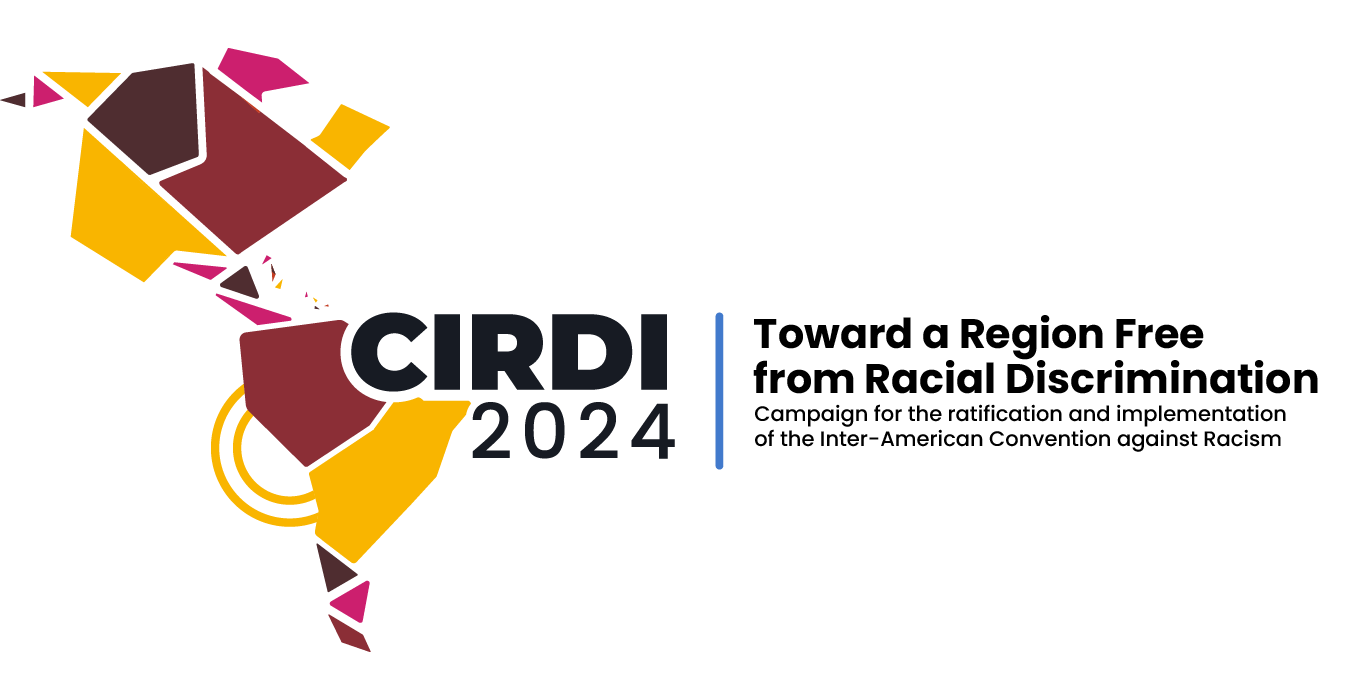 Chile signed the Inter-American Convention against Racism, Discrimination and Related Intolerance on October 22, 2015. Since then, Afro-descendant and indigenous social organizations and leaders insist on the ratification and implementation of this international instrument by the national government.
Chile signed the Inter-American Convention against Racism, Discrimination and Related Intolerance on October 22, 2015. Since then, Afro-descendant and indigenous social organizations and leaders insist on the ratification and implementation of this international instrument by the national government.
Cristian Báez is an Afro-Chilean leader that has been working for 15 years in civil society for the recognition of the ancestral peoples in his country, and particularly, the Afro-descendant people. The advocacy work developed by Ong Lumbanga together with Race and Equality, revolves around establishing norms that allow Chilean society to overcome the racist and discriminatory practices embedded within its societal framework. For this reason, the activist calls on parliamentarians, Afro-descendant and indigenous social organizations and society in general to push for and achieve the ratification and implementation of the Inter-American Convention against Racism, Discrimination and Related Intolerance, also known as the Inter-American Convention against Racism (CIRDI).
In an interview with the CIRDI 2024 campaign team, promoted by Race and Equality, the Chilean activist discussed the current migration phenomenon taking place in his country, stating “Chile is the country with the second largest migration of the Afro-Haitian and Afro-Colombian population, after the United States, with children being the object of racist mockery and rejection which is disguised as bullying. This is not sanctioned in schools or in the health system. In the last year we have had the suicide of Haitian women as a result of racism in the health system and there is no protection or accountability for these cases.”
Chile has made progress in creating protective measures aimed at Afro-descendant ethnic peoples, for example, the Zamudio Law, which Báez points out is incomplete since it only protects ethnic peoples when they are subject to violence or aggressions but does not prevent them. Therefore, the ratification of CIRDI is an opportunity to strengthen national and international policy issues in relation to human rights. Báez emphasized, “With the ratification of the Inter-American Convention against Racism, Discrimination and Related Intolerance we could make visible a number of aggressions in the country in which the main victims are Afro-descendant people.”
Finally, the Afro-Chilean leader made a call to Afro-descendant and indigenous organizations in Chile to continue strengthening the legislation of the country to guarantee a fulfilling, dignified life. In his words, “Brothers and sisters of the diaspora, continue to influence the Foreign Ministries of the countries to achieve the protection of the peoples”. He also stated that what happened with George Floyd, happens every day, that though his case went viral, impunity remains a great obstacle. He continued to say that such acts cannot be allowed, neither as Afro-descendant peoples, nor as citizens concerned about the development of our countries.
Race and Equality will continue to work with governments, social leaders and their organizations to achieve the ratification and implementation of the Inter-American Convention against Racism (CIRDI) in the countries of the region.


